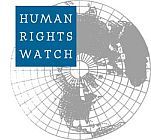The 1953 Qibya Raid
 According to the UK’s Channel 4 News:
According to the UK’s Channel 4 News:
In 1953 he [Sharon] helped form Unit 101, a unit that carried out reprisals for the slaying of an Israeli woman and her two children. His troops blew up more than 40 houses in Qibya, a West Bank village then ruled by Jordan, slaughtering 69 Arabs. Sharon later said he thought the houses were empty.
Sharon is often accused of responsibility for the deaths of 69 Jordanian civilians in a raid on the village of Qibya. The 1953 Qibya raid was part of an Israeli government policy to respond to deadly terrorist raids by “fedayeen” terrorists sponsored by neighboring Jordan and Egypt. Hundreds of Israeli civilians had been killed, and the government responded by sending Sharon’s 101 Unit to hit the fedayeen, the army bases that supported them, and the villages that housed them. As the force approached the village, hundreds of Qibya residents were seen fleeing. The force believed that all residents had fled.
According to the official IDF Encyclopedia, the soldiers found a young girl in one house and an elderly man in another. They were quickly chased away. Soon after, IDF sappers blew up dozens of Qibya houses. No one knew that 69 civilians were hiding inside the homes. Their deaths were not deliberate but the result of faulty intelligence and the military operation was widely condemned, both within Israel and outside.
Reuters states:
Wounded as a young officer in the 1948 war of Israel’s founding, he [Sharon] went on to lead key commando units and crafted a policy of reprisals – even at the cost of innocent lives – for cross-border Palestinian guerrilla raids.
A “policy of reprisals – even at the cost of innocent lives” falsely implies that it was actually Israeli policy to target innocent civilians. This has never been the policy of the IDF, which goes to incredible lengths to avoid civilian casualties.
Other Bias
That Palestinians and other Arab commentators are giving negative comments to the media is unsurprising given Sharon’s reputation and image in the Arab world and it is legitimate to report on these sentiments. But what about so-called experts who are pushing a personal agenda rather than giving objective analysis?
NPR quotes Mark LeVine, professor of contemporary Middle East history at the University of California, Irvine:
Sharon’s actions as both a soldier and a politician reflected the innermost fears and desires of many Israelis about the nation they longed to establish in what was essentially a hostile environment, LeVine said.
“They knew that in order for Israel to succeed and for Zionism to succeed, it involved necessarily a conflict with the indigenous population of the country that was never going to be neat or pleasant,” LeVine said.
That LeVine presents Israel as a colonialist outsider conflicting with an “indigenous population” is hardly surprising considering that he is a prominent supporter of the Boycott, Divestment and Sanctions (BDS) movement.
 The Associated Press and Times of London quote Sarah Leah Whitson of Human Rights Watch:
The Associated Press and Times of London quote Sarah Leah Whitson of Human Rights Watch:
It’s a shame that Sharon has gone to his grave without facing justice for his role in Sabra and Chatilla and other abuses.
Human Rights Watch has been exposed time and again as displaying a clear anti-Israel obsession and Sarah Leah Whitson has a long history of anti-Israel activism, including support for BDS. As NGO Monitor notes, in May 2009, Whitson led a trip to seek support in Saudi Arabia, where she emphasized HRW’s “shortage of funds because of the global financial crisis and the work on Israel and Gaza, which depleted HRW’s budget for the region.” She highlighted HRW’s stance of standing up to “pro-Israel pressure groups,” which, she declared, “strongly resisted the report and tried to discredit it.”
That HRW and Sarah Leah Whitson are quoted as credible sources is a testament to the unhealthy symbiotic relationship between the media and NGOs and the “halo effect” that gives rise to so-called human rights organizations being considered beyond reproach.
Keep an eye on your local media to assess the coverage of Ariel Sharon’s life and death. Is it fair or has Sharon’s record been decontextualized to create an unfair or inaccurate portrayal?
Image: CC BY-SA Jim Wallace (Smithsonian Institution/flickr).


